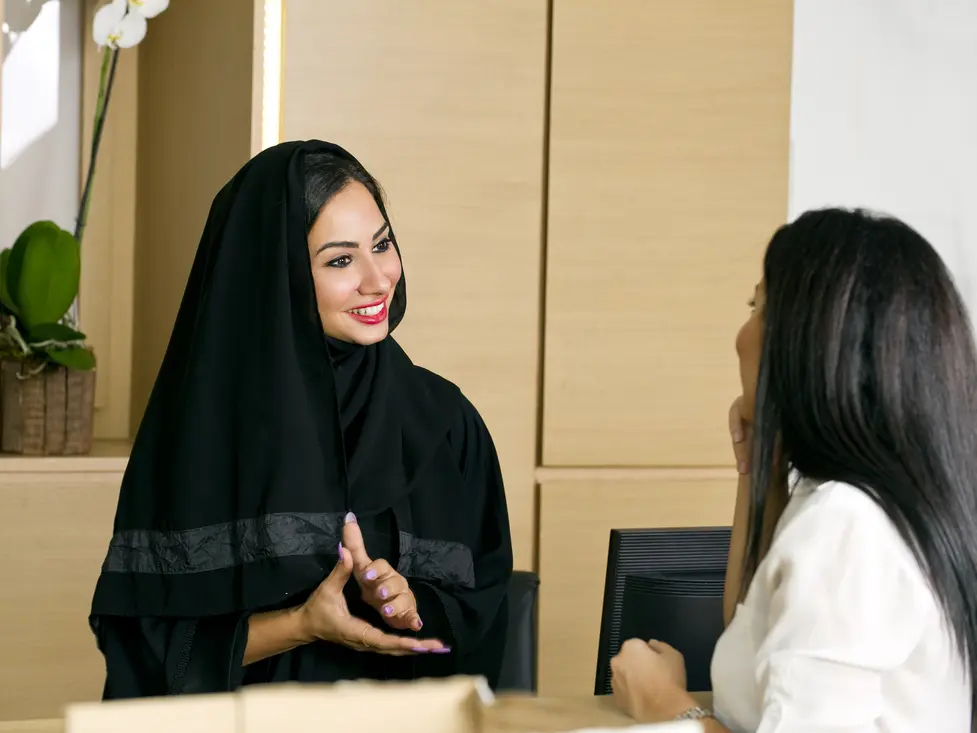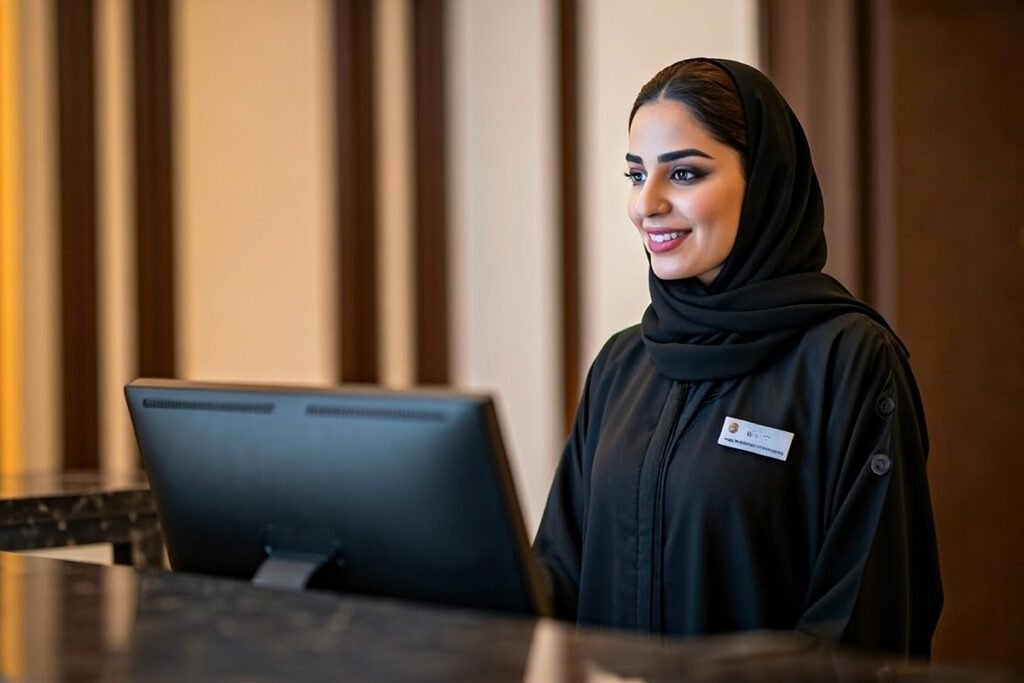In a country once known for its limited opportunities for women, Saudi Arabia is witnessing a quiet revolution. Today, women own nearly 50% of the Kingdom’s hospitality businesses—including cafes, restaurants, and hotels. This transformation is not just symbolic; it marks a significant shift in the Saudi economy and the role of women in shaping its future.
A New Era for Women in Saudi Hospitality
Women in Saudi hospitality are becoming powerful players in one of the country’s fastest-growing sectors. The Ministry of Municipal and Rural Affairs and Housing recently reported that nearly half of all hospitality permits are now issued to women. This includes licenses for cafes, bakeries, food trucks, restaurants, and even boutique hotels.
This leap is remarkable, considering that just a decade ago, Saudi women faced legal and social barriers that prevented them from working in such industries—let alone owning a business.

Vision 2030: The Catalyst Behind the Change
This growth ties directly into Vision 2030, Saudi Arabia’s ambitious plan to diversify its economy away from oil and increase female participation in the workforce. One of its core goals is to empower women economically. And the hospitality sector—with its mix of tradition and modernity—has become fertile ground for that empowerment.
The Saudi government has introduced several reforms to support female entrepreneurs:
- Quicker business license approval processes
- Access to government-backed financing
- Networking platforms for women-led businesses
- Flexible working hours and legal protections
Thanks to these reforms, more women are opening restaurants, coffee shops, and hotels that cater not only to locals but also to international tourists.
From Kitchen to CEO: Success Stories on the Rise
Across the Kingdom, inspiring stories of women-led hospitality ventures are emerging. Some of these entrepreneurs started small—selling baked goods from home or running food trucks—and now manage thriving businesses with dozens of employees.
One example is Fatimah Al-Qurashi, a former stay-at-home mother who now runs a popular chain of fusion cuisine cafes in Jeddah. “I never imagined I would be managing multiple locations and mentoring other women to do the same,” she says.

In Riyadh, sisters Huda and Rania Al-Salem co-own a boutique hotel that blends Saudi heritage with modern luxury. Their hotel has received glowing reviews from both local influencers and foreign tourists.
These success stories are not just inspiring—they’re also helping to normalize women in leadership roles in the public sphere.
Hospitality Industry: A Natural Fit for Female Entrepreneurs
There’s a cultural resonance to women succeeding in hospitality. In many ways, hospitality builds upon traditional female roles—hosting, cooking, and caretaking—while bringing them into a professional, scalable business model.
Many women-led ventures have created unique value by focusing on:
- Health-conscious menus
- Family-friendly or women-only spaces
- Locally sourced ingredients and sustainability
- Cultural experiences, such as traditional cooking classes
This fusion of heritage and innovation gives Saudi Arabia a unique edge in global tourism.
Challenges Still Remain
Despite the progress, challenges persist. Some female entrepreneurs still face social resistance or lack access to seasoned mentors. Others encounter difficulties securing funding or navigating bureaucratic hurdles.
Transportation remains another issue. While women can now drive, logistical challenges in some regions still limit their mobility and business operations.
There’s also the matter of representation in high-level hospitality management. While ownership is on the rise, women are still underrepresented in executive roles at large hotels or multinational chains.
Government and Private Sector Collaboration
To overcome these hurdles, both government agencies and private organizations are stepping in. Programs like Monsha’at (the General Authority for Small and Medium Enterprises) and banks like Al Rajhi and SNB are providing targeted funding for female-owned startups.
Private accelerators and hospitality training programs are also offering mentorship and skill development specifically for women. These include courses in culinary arts, hotel management, and digital marketing—crucial tools for running a modern hospitality brand.
The Bigger Picture: Economic and Cultural Impact
The rise of women in Saudi hospitality is more than just an economic story—it’s a cultural one. It represents a break from long-standing gender norms and adds fresh voices to the country’s evolving identity.

Saudi Arabia’s tourism sector is expected to contribute over 10% to the GDP by 2030, and women-led businesses are poised to play a major role in this growth. Female-owned restaurants and hotels also enrich the tourism experience by offering more diversity in tastes, design, and service.
Moreover, this shift contributes to a stronger sense of community and inclusivity, which is increasingly valued by both locals and foreign visitors.
What the Future Holds
If current trends continue, women may soon outnumber men as hospitality entrepreneurs in Saudi Arabia. This would not only boost the national economy but also serve as a model for other industries.
The key moving forward will be sustaining momentum:
- Continued access to funding and education
- Stronger support networks
- Addressing regional disparities in access and infrastructure
- Encouraging corporate giants to elevate women into senior roles
As social norms evolve and tourism continues to expand, the hospitality industry will likely remain a beacon of opportunity for Saudi women.
Conclusion
The rise of women in Saudi hospitality shows how targeted reforms, cultural evolution, and personal ambition can combine to drive real change. Women are not just participating—they’re leading. And in doing so, they are transforming the Kingdom’s economy and inspiring a new generation of entrepreneurs.
Read More: UAE Launches National Geographic Tag System to Protect Local Products













